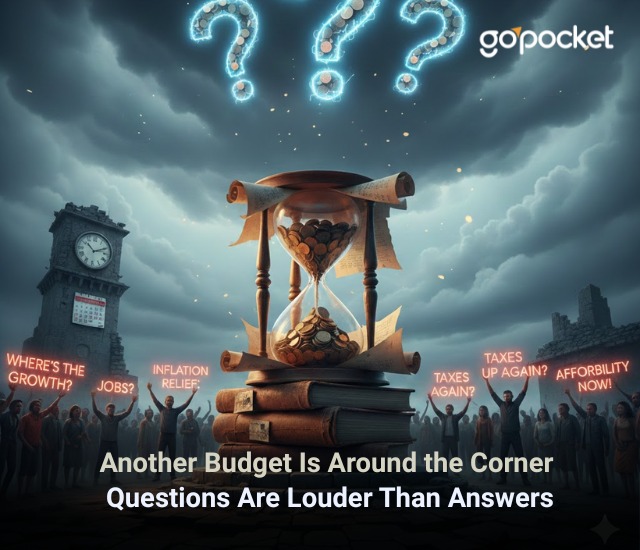
If you're a young Indian investor, you've likely stood at this exact financial crossroads: ETF vs Mutual Fund. The internet is filled with conflicting advice, and every financial guru seems to have a different opinion. Both are powerful vehicles for wealth creation, but they operate on different tracks. One promises rock-bottom costs and stock-like flexibility; the other offers expert guidance and automated discipline.
So, which one is right for you?
This is not just another article listing pros and cons. This is your definitive 2025 guide, tailored specifically for the Indian market. We will decode the difference between ETF and mutual fund structures, dive deep into tax implications, settle the ETF vs Index Fund debate, and help you build a powerful, intelligent portfolio, whether you’re starting with ₹1,000 or ₹10,000 a month.
Let’s end the confusion, once and for all.
Chapter 1: The Foundation - What Exactly Are You Buying?
Before we can declare a winner in the etf versus mutual fund battle, we need to understand the players. At their core, both are pools of money collected from many investors to buy a basket of securities. The magic is in how that basket is managed and traded.
Understanding Mutual Funds: The Classic Choice
A mutual fund is a trust that pools savings from numerous investors who share a common financial goal. A professional fund manager then invests this collected corpus into a diversified portfolio of assets like stocks, bonds, gold, or a mix of these.
In the world of mutual funds and ETFs, mutual funds are the seasoned veterans. They are primarily categorized by their management style:
- Actively Managed Mutual Funds: This is what most people think of when they hear "mutual fund." Here, a fund manager and their team of analysts actively research and select stocks or bonds with the goal of beating a market benchmark (like the Nifty 50). They buy what they think will go up and sell what they think will go down. This expertise comes at a higher cost, known as the Expense Ratio.
- Example: An active large-cap fund manager might choose to invest in only 40 out of the 50 stocks in the Nifty 50, overweighting those they believe will perform best.
- Passively Managed Mutual Funds (Index Funds): These funds don’t try to be heroes. Their sole objective is to mirror the performance of a specific market index, like the Sensex or Nifty 50. The fund manager simply buys all the stocks in the index in the exact same proportion. Since there’s no active stock-picking, the costs are significantly lower.
- you can use our SIP calculator to calculate your returns
When you invest in a mutual fund, you buy "units" at the day's closing price, known as the Net Asset Value (NAV). Whether you buy at 9 AM or 3 PM, your transaction is processed only once, after the market closes.
Understanding Exchange-Traded Funds (ETFs): The Modern Challenger
An Exchange-Traded Fund (ETF) is a hybrid beast. Like a mutual fund, it's a collection of securities that tracks an underlying index. But here’s the game-changing twist: ETFs are listed and traded on a stock exchange, just like a regular share of Reliance or TCS.
This means you can buy or sell ETF units anytime during market hours at their live, fluctuating market price. This intraday trading capability is the single biggest structural difference between exchange traded funds and mutual funds.
Almost all ETFs in India are passive. They aim to replicate an index—be it the Nifty 50, the Nifty Bank index, or even the price of gold. To trade ETFs, you absolutely need a Demat and Trading account, the same kind you'd use for buying stocks.
Chapter 2: The Crucial Sub-Plot: ETF vs Index Fund
Many young investors get stuck here. If both are passive and track an index, what's the difference? This is a key point in the etf or mutual fund decision.
Think of them as siblings with different personalities. Both come from the same "passive investing" family, but they behave differently.
- An Index Fund is a type of Mutual Fund.
- An ETF is its own type of security that trades like a stock.
Here’s a clear breakdown to settle the index etf vs index fund debate:
Feature Index Fund (Mutual Fund Structure) Exchange-Traded Fund (ETF) Trading Bought/sold once a day at the closing NAV. Traded throughout the day on the stock exchange at live prices. Account Needed Can be bought directly from the AMC or via platforms without a Demat account. Requires a Demat and Trading account. Cost Structure Primarily the Expense Ratio. No brokerage if bought directly. Expense Ratio + Brokerage Fees + other statutory charges on every transaction. SIP Facility The biggest advantage. Easy, automated monthly investments (SIPs).No native, automated SIP. You must buy units manually each month, though some brokers offer workarounds like GTT orders. Minimum Investment Very low. SIPs can start from as little as ₹100 or ₹500.The price of one unit (e.g., one unit of a Nifty 50 ETF costs around ₹230). Liquidity You sell back to the fund house. The process takes a day or two. You sell to another investor on the exchange. Liquidity can be an issue for less popular ETFs, leading to a wider "bid-ask spread."
The Bottom Line: When choosing between exchange traded funds vs index funds, the decision boils down to Automation vs. Control. If you want a disciplined, hands-off, automated way to invest in an index, the Index Fund is your champion. If you are a hands-on investor who wants to control the exact price of entry/exit and are mindful of costs, the ETF is superior.
Chapter 3: The Main Event: ETF vs MF - A Factor-by-Factor Battle
Now that we have clarified the nuances, let's pit etf funds vs mutual funds directly against each other across the parameters that matter most to a young investor.
1. Cost & Expense Ratio: The Silent Wealth Killer
This is where ETFs land their heaviest punch.
- ETFs: Because they are passively managed and have a simpler structure, their Total Expense Ratios (TERs) are incredibly low. For a Nifty 50 ETF, it’s common to see TERs as low as 0.05%. This means for every ₹1,00,000 you invest, you only pay ₹50 a year in management fees.
- Mutual Funds: Actively managed funds are much more expensive. The fund house has to pay for a star fund manager, a team of analysts, research reports, and marketing. TERs for active equity funds can range from 1% to over 2%. On a ₹1,00,000 investment, that’s ₹1,000 to ₹2,000 per year.
Over 20-30 years, this small difference in fees compounds into a massive gap in your final corpus. This is the single most compelling argument for passive investing, whether through an etf or mutual fund (index fund).
Winner: ETFs (and by extension, Index Funds)
2. Trading, Liquidity & Flexibility
This is a battle of philosophies: patience vs. immediacy.
- ETFs: Offer real-time liquidity. If you see a market crash at 11 AM and want to buy the dip, you can place an order for an ETF and get it at that moment's price. Similarly, you can sell instantly. This gives you immense control. However, for niche ETFs with low trading volumes, you might face a "bid-ask spread" – the difference between the highest price a buyer is willing to pay and the lowest price a seller is willing to accept. This spread is an indirect cost.
- Mutual Funds: Operate on a "trust the process" model. You place your buy/sell order, and it gets executed at the end-of-day NAV. This removes the temptation to time the market, which is often a losing game for retail investors. It enforces discipline.
Winner: Tie. It depends entirely on your personality. ETFs for hands-on traders, Mutual Funds for disciplined, goal-oriented investors.
3. Tax Efficiency: The Hidden Advantage (India-Specific)
This is a more nuanced point where ETFs have a technical edge.
Fund Type Holding Period Short-Term Capital Gains (STCG)Long-Term Capital Gains (LTCG)Equity Funds / Equity ETFs> 1 year15% on gains10% on gains above ₹1 lakh per year Debt Funds / Debt ETFs Any Taxed at your income tax slab rate Taxed at your income tax slab rate (with indexation benefit)
While the tax rates are the same, the tax efficiency is not.
- Why are ETFs more tax-efficient? It’s due to their unique creation/redemption mechanism. When a large investor wants to redeem ETF units, the fund house can give them the actual underlying stocks instead of selling stocks and giving them cash. This "in-kind" transaction doesn't trigger a capital gains event inside the fund.
- Active Mutual Funds, on the other hand, are constantly buying and selling stocks to try and beat the market. Every time they sell a stock for a profit, it creates a capital gain, which is eventually distributed to investors and can be a tax liability for the fund, slightly dragging down the NAV over time.
This diff between etf and mutual fund is subtle but adds up over decades, making ETFs a slightly more tax-friendly vehicle.
Winner: ETFs
4. The SIP Dilemma: Automation is King
For a young investor building wealth through monthly savings, this is arguably the most important factor.
- Mutual Funds: They are built for Systematic Investment Plans (SIPs). You can set up an auto-debit from your bank account for any amount (starting as low as ₹100) on a specific date, and the investment happens automatically. It’s the epitome of "pay yourself first" and builds discipline.
- ETFs: Do not have a native, automated SIP feature. To invest monthly, you must log into your Demat account every month and manually buy the ETF units. This requires discipline and can be easy to forget. While some brokers offer "GTT" (Good-Till-Triggered) orders or other workarounds, it's not as seamless as a true mutual fund SIP.
For someone just starting their career, the forced discipline of a mutual fund SIP is an invaluable tool for wealth creation.
Winner: Mutual Funds
Chapter 4: The Verdict - Who Should Choose What?
The etf vs mutual fund which is better question has no single answer. The right choice depends on your personality, financial habits, and goals. Let's create some investor personas.
Choose Mutual Funds if...
- You are a "Disciplined Automator": Your primary goal is to invest a fixed amount every month without fail. You value consistency over control. The automated SIP feature is non-negotiable for you.
- You are a First-Time Investor: The world of Demat accounts, brokerage, and live market prices feels overwhelming. Mutual funds offer a much simpler onboarding process through user-friendly apps, often without needing a Demat account.
- You Believe in Expert Alpha: You believe a skilled fund manager can navigate volatile markets (especially in categories like small-cap or mid-cap) and generate returns superior to the market index, even after accounting for higher fees.
- You are Investing for Specific Goals: You want to earmark investments for "Child's Education" or "Retirement" and prefer a set-it-and-forget-it approach managed by a professional.
Choose ETFs if...
- You are a "DIY Cost-Cutter": You have a Demat account, are comfortable with the stock market interface, and your primary goal is to minimize costs over the long term. You understand that a 1% difference in fees can mean lakhs of rupees in the future.
- You are a "Strategic Market-Timer": You follow the markets and want the flexibility to buy on dips or sell at peaks during the day. You value intraday liquidity and control over your entry/exit points.
- You are a "Passive Purist": You believe that beating the market consistently is nearly impossible, and your goal is simply to mirror the market's returns at the lowest possible cost and with maximum tax efficiency.
- You Already Have a Demat Account: If you're already investing in stocks, adding ETFs to your portfolio is a seamless process. It's just another "stock" to buy.
Chapter 5: The Hybrid Strategy - The Smartest Approach
Why choose one when you can have both? The most sophisticated investors don't see this as an ETF vs MF war. They see it as a toolbox, and they use the right tool for the right job. This is often called the "Core-Satellite" strategy.
- Your CORE Portfolio (70-80%): This forms the stable, long-term base of your investments. Use low-cost, passive instruments here.
- Ideal Choice: Nifty 50 ETFs and Nifty Next 50 ETFs. They give you diversified exposure to India's top 100 companies at a fraction of the cost. This is your wealth compounder.
- Your SATELLITE Portfolio (20-30%): This is where you take calculated risks to generate "alpha," or returns above the market.
- Ideal Choice: Actively managed Mutual Funds. Use them for sectors where a manager's skill can genuinely add value. For example, a good Small-Cap fund manager can identify future multibaggers far better than an index can. You could also use thematic funds (e.g., a "Consumption" theme fund) or a Flexi-Cap fund here.
Sample Portfolio for a ₹10,000 Monthly Investment (Aggressive Profile):
Instrument Instrument Type Allocation Rationale Nifty 50 ETF Core (ETF)₹4,000The low-cost, stable foundation of your entire portfolio, tracking India's top 50 companies. Nifty Next 50 ETF Core (ETF)₹2,000Captures the growth of the next 50 emerging blue-chip companies. A great source of long-term growth. Small-Cap Fund Satellite (Active MF)₹2,500High-risk, high-return potential. A skilled fund manager is crucial for navigating this volatile space. Flexi-Cap Fund Satellite (Active MF)₹1,500Gives the fund manager the flexibility to invest across large, mid, and small-cap stocks, capturing opportunities wherever they arise.
This blended strategy gives you the best of both worlds: the rock-solid, low-cost core of ETFs and the alpha-generating potential of well-chosen active mutual funds. also feel free to read our article on equity vs shares
Chapter 6: Specific Debates & FAQs
Let's tackle some common questions.
Q: What about Gold? Gold Mutual Funds vs Gold ETF?
This is a classic dilemma. The gold mutual funds vs gold etf comparison is similar to the equity one.
- Gold ETF: Directly tracks the domestic price of gold. Very low expense ratio. You need a Demat account. It's the most cost-effective way to hold paper gold.
- Gold Mutual Fund: It's a "fund of funds" that, in turn, invests in a Gold ETF. So you're paying an extra layer of expense ratio for the convenience of investing without a Demat account and doing a SIP.
- Verdict: If you have a Demat account, the Gold ETF is superior. If you don't, a Gold Mutual Fund is a good alternative, but be aware that Sovereign Gold Bonds (SGBs) are often the most tax-efficient way to invest in gold if you can hold them for 8 years.
Q: Are ETFs safe for beginners?
An ETF is as safe as the index it tracks. A Nifty 50 ETF is as safe (or risky) as investing in India's top 50 companies. The risk for a beginner is not in the product itself, but in the process. The need for a Demat account and manual trading can be a hurdle. Mutual funds, especially via the SIP route, reduce the "friction" and behavioural mistakes a beginner might make.
Q: Can ETFs give better returns than mutual funds?
Over the long term, a low-cost ETF tracking a major index will very likely outperform the average actively managed mutual fund. This is because the high fees of active funds act as a significant drag on returns. However, top-quartile active funds can and do beat the index, especially in less efficient markets like small-caps.
The Final Word: Your Choice, Your Journey
There is no universal champion in the ETF vs Mutual Fund debate. The winner is the one that aligns with your behaviour, your goals, and your level of involvement.
- If your mantra is "Automate, Simplify, and Stay Disciplined," the mutual fund, with its powerful SIP feature, is your steadfast ally.
- If your mantra is "Control, Minimize Costs, and Be Hands-On," the ETF, with its low-cost structure and stock-like trading, is your perfect weapon.
Or, you can do what the smartest investors do: open a demat account on gopocket and start buy ETF. Use ETFs to build your low-cost, long-term foundation, and sprinkle in a few high-quality mutual funds to hunt for that extra growth.
The most important step is to start. Your future self will thank you for it.
"Investments in securities market are subject to market risks. Read all the related documents carefully before investing."
What's Trending
December 18, 2025
September 15, 2023
Recent Blog
Open Your Demat Account in Under 5 Minutes
Have any queries? Get support
Blog
Recent Blogs

Open your GoPocket Account within 5 minutes.
Have any queries?







.jpeg)

.jpeg)





